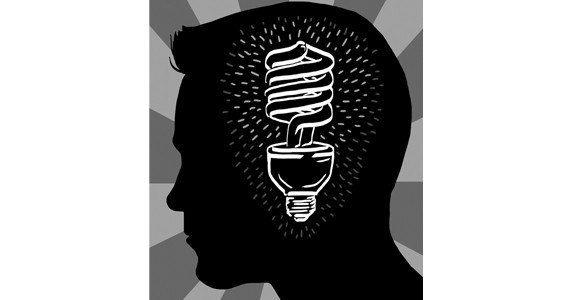Last month the Chronicle-Herald editorialized that the province and Utility and Review Board should "rethink the policy of levying conservation charges on power bills." In the face of rapidly escalating energy costs, that's something a lot of Nova Scotians have been doing at home.
The Herald's argument is that Efficiency Nova Scotia costs ratepayers tens of millions of dollars annually to cut energy consumption by 135-million kilowatt hours, and here a couple paper mills shut down and save 900-million kilowatt hours for nothing--- unless you count the increased EI and other social payments.
It's a red-herring argument that anchors ones thoughts on irrelevant information. In deciding whether $36 million is a good investment in improving our energy efficiency, it makes no difference if we saved more shutting down factories---unless we're willing to consider going around shutting down other factories as a legitimate power-saving tactic.
What's economically relevant, and what the URB analyzes annually, is whether Efficiency Nova Scotia is worth the investment. And by every metric, it is. It saves the province more money than it costs ratepayers, and it saves energy more cheaply than renewables (including Muskrat Falls hydro).
Ironically, the Herald's very next editorial advised that, on the subject of the Muskrat Falls deal, "URB must conduct a thorough investigation of alternatives." That's exactly the sage thinking that led to Efficiency Nova Scotia.
From the beginning, Efficiency was decidedly not established for the good of society. It was developed based on cold hard economics. While environmentalists hailed the concept of placing energy savings beyond the purview of Nova Scotia Power and government, it was a 2007 NSP 30-year Integrated Resource Plan that determined energy efficiency would cost ratepayers much less than fossil fuels.
On average, efficiency programs cost about three-and-a-half cents per kilowatt-hour saved. The cost of generating the same energy in Nova Scotia is about 10 cents per kilowatt-hour. Some say that if the system is managed beautifully and the costs of renewables come down as expected over time, with more natural gas thrown in the mix, we might get that down to six or even five cents per kilowatt-hour. Still not nearly as cheap as efficiency measures. Conversely, smart metres are a great way to help consumers save money, but have little to no impact on greenhouse gas emissions.
To put Efficiency Nova Scotia's cost to consumers in perspective, you can recoup what you give them on your bill by changing a handful of household lightbulbs to compact fluorescents. The non-governmental agency, which thanks to URB's watchful eye has a higher degree of economic accountability than most government agencies, is imperfect---as are the patchwork of government rebate programs and incentives designed to save us energy and money.
But its establishment was visionary, and followed an unusually high degree of consultation (though also imperfect) via Dalhousie management professor David Wheeler. And it has very quickly attained impressive levels of energy savings.
Last year, for $36 million, Efficiency NS saved ratepayers $100 million in future electricity costs. As Efficiency NS points out, that's a 275 percent payback, without considering the savings in environmental cleanup or the 37 jobs created for every $1 million invested---five times more than traditional energy projects ---according to the Pembina Institute.
Efficiency's performance is comparable, on a per capita basis, to world-leading organizations like Efficiency Vermont and Oregon Energy Trust---both run via nominal energy bill surcharges. And similar programming in Massachusetts in 2010 alone created $1.3 billion in customer savings, $6 billion in overall economic benefits, and 14,000 job-years of employment. The state is ranked first in the US in energy efficiency. Canada, as a nation, recently ranked 11 of 12 nations analyzed---below Brazil, China and the US.
The Herald's suggestion to cut Efficiency Nova Scotia's funding source while it's still in its infancy, yet is miraculously already walking, makes no economic sense. What is needed is not miserly penny pinching, but better access to low-cost efficiency measures, and energy discounts to low-income households.












